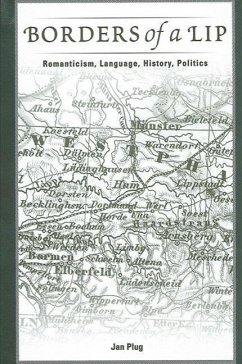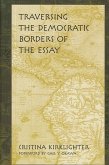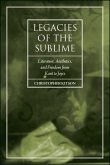This book recasts questions about the overlapping boundaries of language, history, and politics that have been at the center of critical and theoretical debates in the study of Romantic literature and thought. While post structuralism and deconstruction have been accused of privileging language over history, the New historicism and other historicist and cultural approaches to literature have attempted to restore history's place in the study of literature. Taking its title from a reading of the word"Lippe in Kleist's "Die ermannsschlacht, Borders of a Lip is drawn to neither of these poles, but instead to their meeting place or coincidence: the site of a border, a political or national boundary even the boundary that is the political, the lip that is also the place of language. Through readings of Kant, Wordsworth, Kleist, Mary Shelley, Yeats, and Lyotard, the book examines the convergence of language and history that takes place in their work. Instead of placing language and history in absolute opposition, making the border an unbreachable limit the book explores how crossing these borders (re)defines the political.








